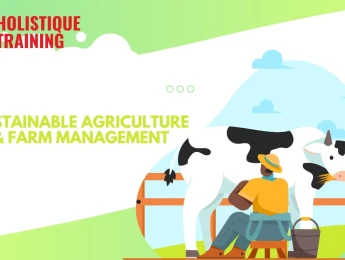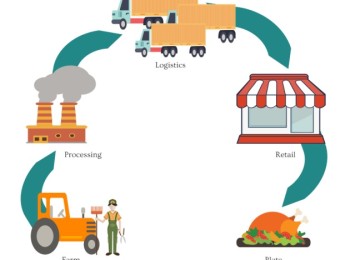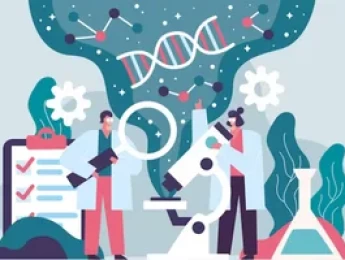The Sustainable Agribusiness and Environmental Management (SAEM) course is designed to equip professionals with the skills and knowledge to lead in the sustainable agriculture sector. This intensive program focuses on agribusiness management, sustainable farming practices, and environmental stewardship, preparing participants to address the challenges of climate change and promote sustainable agricultural practices.
Upon completion of this course, participants will be able to:
- Understand the principles and practices of sustainable agriculture.
- Develop skills in agribusiness management, including finance and marketing.
- Learn about climate change impacts and mitigation strategies in agriculture.
- Gain expertise in organic and arable farming techniques.
- Enhance leadership and strategic planning abilities in agribusiness.
This course is intended for:
- Agribusiness professionals and managers
- Farm owners and operators
- Environmental and agricultural consultants
- Policymakers and NGO staff
- Students and academics in agriculture and environmental science
This course uses a variety of adult learning styles:
- Online Modules : Pre-course materials and interactive e-learning sessions.
- In-person Workshops : Hands-on training and practical exercises.
- Case Studies and Simulations : Real-world applications and problem-solving.
- Peer Networking : Opportunities to connect with industry professionals.
- Assessments : Daily quizzes and a final comprehensive exam to evaluate understanding.
Day 5 of each course is reserved for a Q&A session, which may occur off-site. For 10-day courses, this also applies to day 10
Section 1: Introduction to Sustainable Agriculture
- Overview of sustainable agriculture
- Key concepts and principles
- Historical context and future trends
Section 2: Agribusiness Management
- Business planning and strategy
- Financial management and budgeting
- Marketing and market analysis
Section 3: Climate Change and Agriculture
- Impact of climate change on agriculture
- Mitigation and adaptation strategies
- Policy frameworks and global initiatives
Section 4: Organic Farming Techniques
- Soil health and management
- Organic pest and disease control
- Crop rotation and diversity
Section 5: Environmental Stewardship
- Conservation practices
- Sustainable resource management
- Biodiversity and ecosystem services
Section 6: Arable Farming Practices
- Techniques for arable farming
- Soil fertility and nutrient management
- Weed and pest management
Section 7: Sustainable Farm Operations
- Logistics and supply chain management
- Use of technology in sustainable farming
- Waste management and recycling
Section 8: Leadership in Agribusiness
- Leadership styles and skills
- Team management and development
- Conflict resolution and negotiation
Section 9: Strategic Planning and Implementation
- Developing and implementing strategic plans
- Monitoring and evaluation
- Case studies and practical applications
Section 10: Ethics and Professionalism in Agribusiness
- Ethical considerations in agribusiness
- Professional standards and conduct
- Continuous professional development
Upon successful completion of this training course, delegates will be awarded a Holistique Training Certificate of Completion. For those who attend and complete the online training course, a Holistique Training e-Certificate will be provided.
Holistique Training Certificates are accredited by the British Assessment Council (BAC) and The CPD Certification Service (CPD), and are certified under ISO 9001, ISO 21001, and ISO 29993 standards.
CPD credits for this course are granted by our Certificates and will be reflected on the Holistique Training Certificate of Completion. In accordance with the standards of The CPD Certification Service, one CPD credit is awarded per hour of course attendance. A maximum of 50 CPD credits can be claimed for any single course we currently offer.
- Course Code IND6 - 101
- Course Format Online, Classroom,
- Duration 10 days













